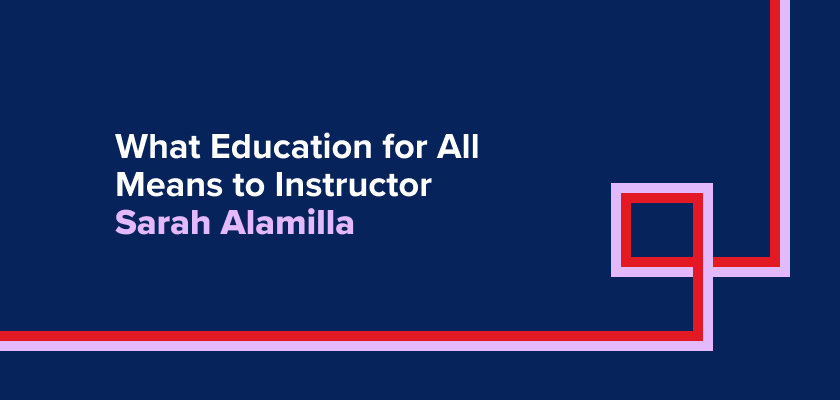Education for All: Instructor Sarah Alamilla Shares What It Means to Her
Education for All means providing unrestricted educational access and opportunity to all individuals, regardless of their physical, mental, and socioeconomic challenges.

In Sarah Alamilla’s article, we hear from yet another instructor who has seen firsthand the beneficial impact of Inclusive Access (IA) on students. In fact, Inclusive Access has saved college students using McGraw Hill products an estimated $500 Million dollars since 2018.
In a study cited in our white paper, Education for All: What It Takes to Get There, we learn that universities and colleges using Inclusive Access were able to reduce the barrier to course materials and improve student grades. Maysville Community and Technical College in Kentucky applied IA to its course materials and the number of students who earned As, Bs, and Cs rose 21%*.
*McGraw Hill, “Maysville Community and Technical College Case Study”, n.d.
Here's what Sarah had to say:
Education for All means providing unrestricted educational access and opportunity to all individuals, regardless of their physical, mental, and socioeconomic challenges. Providing such opportunities results in an increase in an individual’s knowledge and supports their personal and professional growth.
Many students face economic barriers to reliable transportation, access to technology including high-speed internet service, and adequate funds to cover tuition, fees, and required course materials, all of which can impair one’s ability to succeed academically.
Inclusive Access (IA) programs address economic inequities by providing students with a lower-cost option for course materials. It also gives students access to required course materials on or before the first day of class, which is critical to overall success.
My institution has offered Inclusive Access since it became available. It has helped students overcome economic barriers and by doing so, has played a key role in advancing Education for All.
For more on how to foster student success, download our new white paper, Education for All: What It Takes to Get There.


